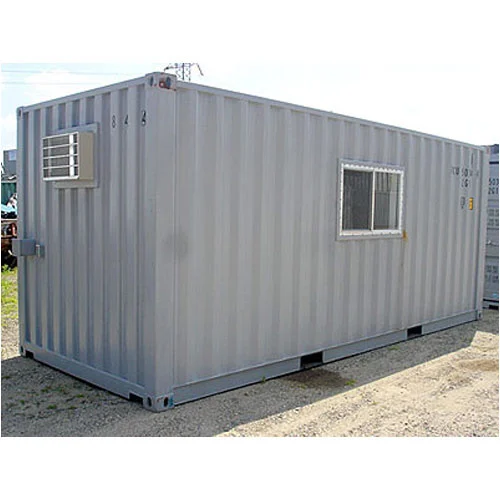In the world of logistics, construction, and storage, shipping containers have become indispensable assets. Their versatility, durability, and portability make them ideal for a wide range of applications. However, when it comes to acquiring these containers, businesses often face a critical decision: should they buy or rent? In this blog, we’ll delve into the economics of container sales versus rentals to help you make an informed choice for your business.
Container Sales:
Investing in purchasing shipping containers offers several advantages, especially for businesses with long-term or recurring needs:
Cost Savings Over Time:
While the upfront cost of buying containers may seem significant, it can translate into substantial savings in the long run. By purchasing containers outright, businesses avoid ongoing rental fees, which can add up significantly over time, especially for extended periods of use.
Ownership Benefits:
Owning containers provides businesses with greater control and flexibility over their assets. They can modify, customize, and deploy containers according to their specific requirements without the constraints imposed by rental agreements. Additionally, owning containers allows businesses to capitalize on resale opportunities when they no longer need them.
Fixed Expenses: Purchasing containers allows businesses to budget more accurately, as they know the fixed costs associated with ownership. There are no surprises or fluctuations in rental rates, making it easier to manage expenses and allocate resources effectively.
Tax Deductions and Depreciation: Depending on the jurisdiction and applicable tax laws, businesses may be eligible for tax deductions and depreciation benefits when they purchase containers. These financial incentives can further offset the initial investment and improve the overall cost-effectiveness of ownership.
Container Rentals:
While purchasing containers offers certain advantages, renting can be a more suitable option for businesses with short-term or sporadic needs
Low Initial Investment: Renting containers requires minimal upfront investment, making it a cost-effective solution for businesses with limited capital or temporary requirements. Instead of tying up funds in purchasing containers, businesses can allocate resources to other areas of their operations.
Flexibility and Scalability: Renting containers provides businesses with greater flexibility and scalability. They can adjust the number and size of containers as needed to accommodate fluctuating demand or changing business conditions without committing to long-term ownership.
Maintenance and Repairs: Rental agreements often include maintenance and repair services provided by the container supplier. Businesses are relieved of the responsibility and costs associated with upkeep, as the rental company assumes these obligations, ensuring that containers remain in optimal condition throughout the rental period.
Risk Mitigation: Renting containers mitigates the risk of obsolescence, as businesses can easily upgrade to newer or more advanced models without bearing the burden of disposal or resale. Additionally, rental agreements typically offer more flexibility in terminating or extending contracts, allowing businesses to adapt to evolving circumstances with minimal financial impact.
Making the Right Choice: Ultimately, the decision to buy or rent containers depends on various factors, including the nature of your business, budget constraints, and anticipated usage patterns. Here are some key considerations to help you make an informed choice:
Long-Term vs. Short-Term Needs: Assess the duration and frequency of your container usage to determine whether purchasing or renting aligns better with your timeline and budget.
Total Cost of Ownership: Compare the total cost of ownership for buying and renting containers over the desired timeframe, taking into account upfront expenses, ongoing costs, and potential resale value.
Operational Requirements: Consider your specific operational requirements, such as customization options, maintenance responsibilities, and scalability, to identify the most suitable solution for your business.
Financial Considerations: Evaluate the financial implications of buying versus renting containers, including tax implications, cash flow considerations, and potential financing options.
In conclusion, both container sales and rentals offer distinct advantages and drawbacks depending on your business needs and circumstances. By carefully weighing the economics of each option and considering factors such as cost, flexibility, and ownership benefits, you can make the right choice to optimize efficiency and maximize value for your business.
 عربي
عربي عربي
عربي